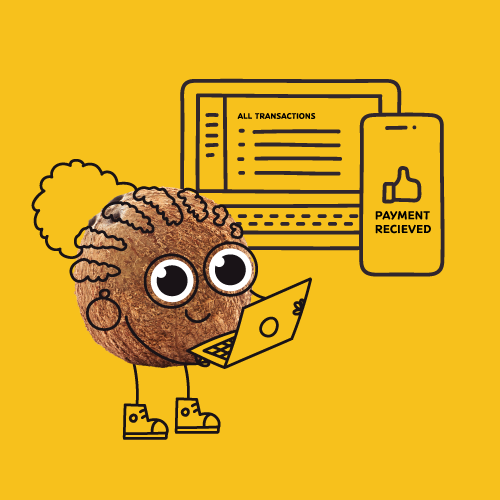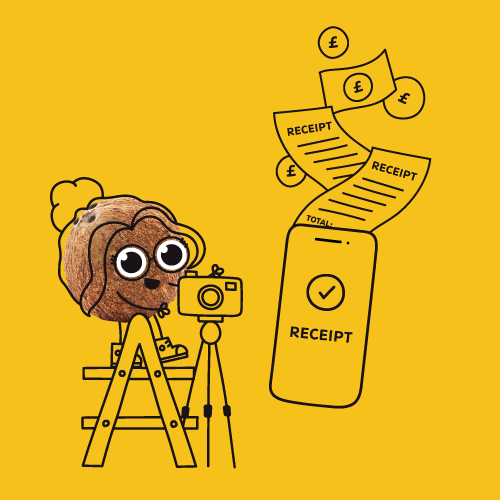[UPDATED: March 2021]
There’s no way to sugarcoat it. Since the coronavirus hit, fraud has been on the rise.
Maybe you’ve heard about it on the news. Or maybe you’ve seen a scam out in the wild in the form of a dodgy-looking email or SMS.
More than likely though, you’ve got plenty else on your plate, and fraud is the last thing on your mind right now. Understandably.
We want to help you protect yourself against Covid-19 fraud. Some of these scams are very clever and only seem obvious in hindsight, but the good news is that a little bit of knowledge gives you a lot of power to avoid becoming a victim.
So here’s what you need to be aware of and what to watch out for.
The TLDR
Be wary of unexpected calls, texts, and emails, and do a double dose of research before you spend money online (whether for products or services, donating money, or investing money). Especially if you feel pressured or if you’ve been told that bank transfer is the only way to pay. If in doubt, walk away!
Why you need to be extra careful about fraud these days
OK, fraud is nothing new. In a nutshell, it’s an act of deception where a criminal makes personal or financial gains at the expense of their victim. Often by pretending to be someone else or by faking a situation to trick you into doing what they want.
Financial institutions have always had a responsibility to protect their customers from financial fraud. You’ve probably been asked to submit documents when you’ve opened an account before, for instance. That’s part of the company’s fraud prevention process.
But over the months since Covid-19 first took hold, the fraud landscape has changed dramatically. Existing scams are on the rise, and on top of that, new scams and patterns are emerging daily in how individuals across the UK are targeted by criminals.
The backstory? During times of crisis (like a global pandemic), scammers use the fragile socio-economic environment to their advantage. In other words: when people are swept up in chaos and confusion, they’re more vulnerable and more likely to fall for a scam, while at the same time, fresh opportunities for fraud open up. A toxic combination. And no, not a nice topic to face up to.
Earlier this month, the BBC reported that £34.5 million has been stolen in pandemic scams. So, here's a list of scams to watch out for and tips on protecting yourself.
9 coronavirus scams to watch out for
- Fraudulent sellers offering fake products online, such as protective masks that will never get delivered to you.
- Fake “cures” for coronavirus.
- Fake insurance policies.
- Transfers of pension funds to accounts that don’t really exist.
- Fake “high return” investment opportunities, including investments in crypto-assets.
- Tax refund scams from criminals who are claiming to contact you from HMRC.
- Phishing, vishing, and smishing: all types of fraud that involve scammers obtaining victims' personal information to impersonate them.
- Number spoofing: some scammers are able to replicate authentic phone numbers, making it tricky for people to tell who is calling or texting.
- Invoice redirection: when victims are tricked into paying money to a scammer who is impersonating the business or an individual who is issuing an invoice.
That last one on the list is a particularly big problem at the moment.
The BBC also reported that internet shopping scams are also on the rise (up 42% on the year before Covid-19 struck) as many took advantage of the fact that physical stores have been closed. One victim - Anna - received a text message prompting her to re-arrange a parcel delivery only to have someone take out a £9,000 loan in her name.
While Anna's suspicions crept in, stopping her from sending the money to the scammers, not everyone is so fortunate. So, please do whatever you can to protect yourself - here are some tips.
How to protect yourself from scams: 10 tips to remember
We recommend the following, based on guidance from the Financial Conduct Authority (FCA).
- Reject offers that come to you out of the blue. Especially any products, services or deals that sound too good to be true. They probably are.
- Be wary of buying things through adverts from organisations you’ve never heard of. For example: social media adverts, “sponsored links”, search engine results that are marked as an advert, or any other type of paid-for/sponsored advert online. This is a common tactic used by fraudsters to target groups of consumers. Advertisers are trying to tackle it, but it’s a difficult problem to solve.
- Use the FCA Register and Warning List to check who you’re really dealing with. The FCA Register is a searchable database of authorised financial service companies, while the Warning List lets you find out about known scams.
- Don’t open emails or click on links from senders you don’t already know. It could be a phishing attempt. This is where a fraudster has got hold of your email address and is attempting to steal your personal information, trick or blackmail you into paying them money or install a virus on your computer that lets them monitor what you’re doing.
- Even if you think you do know the sender, take a close look and ask yourself whether an email seems legitimate before you act. Does the “from” email address use the official website domain, or does it include a weird mix of random letters and numbers? Is the logo wonky? Is the email itself full of mistakes? Does it include the official email footer or not? Taking a moment to think these questions through could help you spot a scam. Fraudsters count on their victims being on autopilot.
- Never let yourself be rushed or pressured into making a decision. Scammers often use deadlines and all sorts of persuasion tactics to get you to say “yes”. For example, an email to your company email address from a fraudster who’s pretending to be your boss and insisting on an urgent invoice payment. (Not sure if it’s fraud? Call your boss to check. They’ll probably be glad you’re being careful.)
- Be wary of unexpected phone calls and text messages. If someone calls you claiming to be from a financial institution, use the contact details on the FCA Register to check that the firm is genuine. And even if the company is authorised - or if the caller says they’re calling from another company or organisation you’re familiar with, such as HMRC - any requests that sound unusual, just hang up. You can always call the number listed on your bank or HMRCs website to double check.
- Don’t give out your personal details through any form of communication. A common phishing scam takes the form of a fake email asking you to re-enter your password or bank details for security reasons. Other scams are less obvious and may ask you to share your address, pension details, insurance details, or investment details.
- Paying by bank transfer? Triple-check that the recipient is who they say they are. If you discover you’ve been a victim of fraud and you’ve paid with a debit card, credit card, or PayPal, or you’ve purchased an item through a trusted marketplace such as Amazon or eBay, there are ways to get your money back. But if you pay a scammer direct to their bank account, it can be a lot harder to recover the funds. Remember to treat bank transfers the way you would treat cash. If you drop a £20 note, chances are it could be there when you go back, but someone could have picked it up. It's the same with bank transfers - your bank may be able to get your money back, but there's also a chance they can't.
- Internet security: use a strong password - at least 8 characters long, a combination of uppercase & lowercase letters, numbers, and symbols, etc - 2-factor authentication and use unique passwords for each website. Do not share your passwords with anyone and change them immediately if you suspect that your account has been compromised.
A quick word about Coconut cards
Remember, we will never ask for your PIN (unless you’re logging into the app!) or tell you to move your Coconut funds elsewhere.
If you’re unsure about a payment you’ve been asked to make, we’re happy to help you out. There are three ways to drop us a line:
- Get in touch with our support team using Coconut’s in-app chat.
- Email us at support@getcoconut.com.
- Call our emergency number: +44 (0) 808 169 9928.
As a Coconut customer, purchases made using your Coconut card are protected by the Mastercard Chargeback Scheme. You have 120 days after you become aware of the problem to file a Chargeback.
You can read more about how Chargebacks work here.
Think you’ve seen a scam out in the wild?
Please do share it to help others avoid becoming victims. Whether you were targeted by a scam but didn’t act on it or have been a victim yourself, there’s no shame in speaking up. Fraud and financial crime are evolving all the time, so if it’s happened to you, we really sympathise.
You can report a scam online through Action Fraud or call them on +44 (0) 300 123 2040.
You can also call the FCA Consumer Helpline on +44 (0) 800 111 6768.











